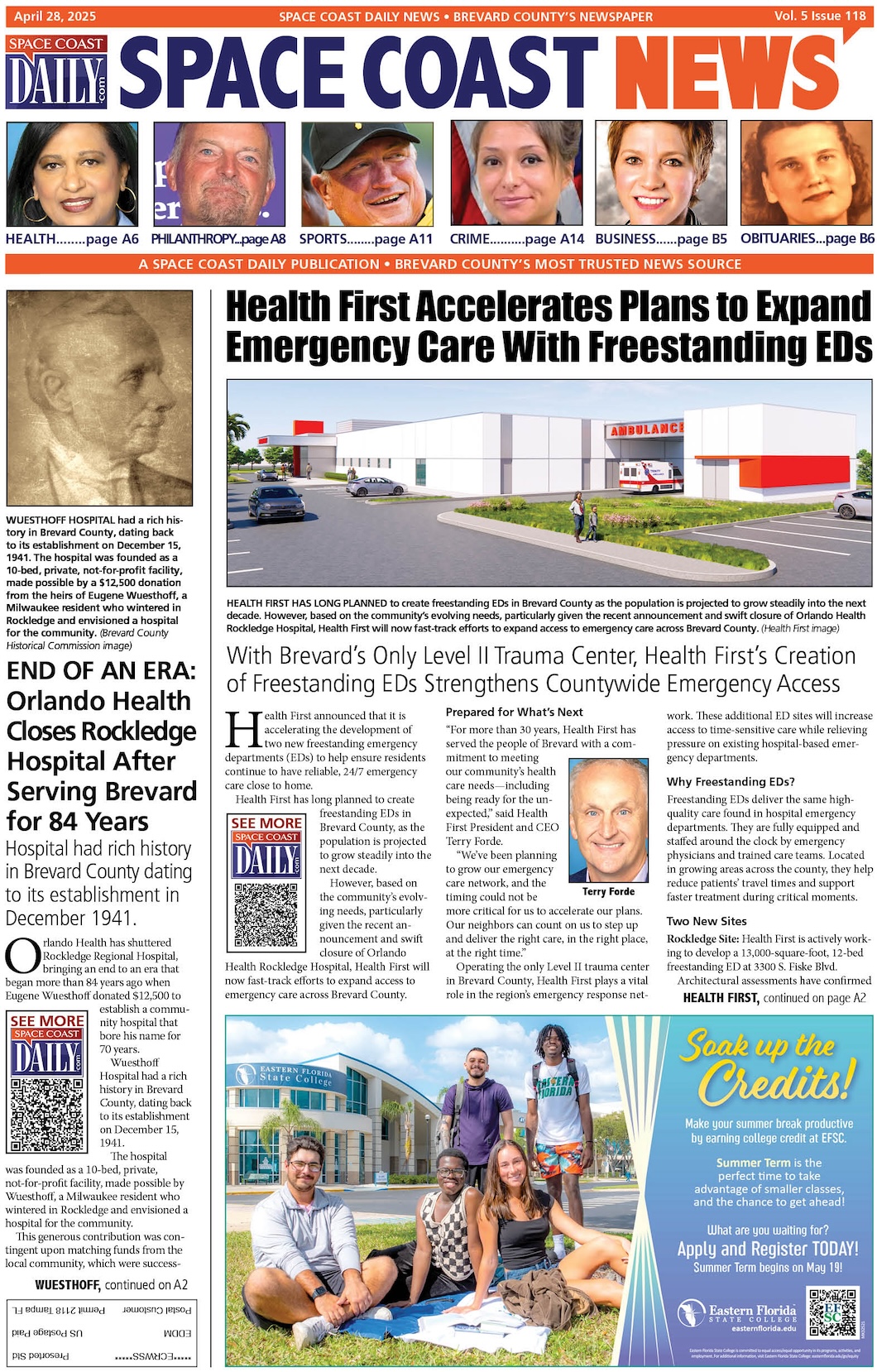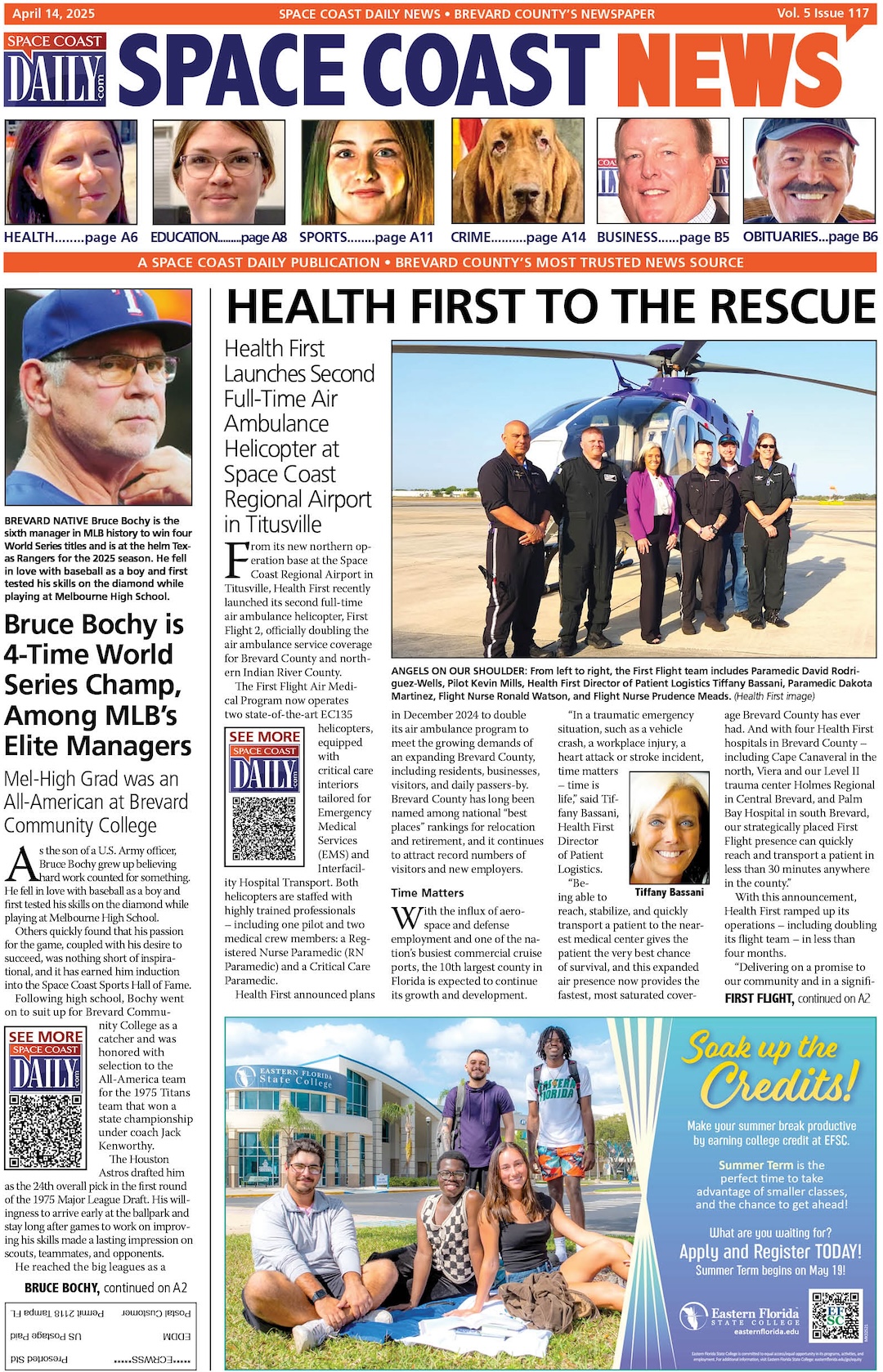Florida Historical Society Remembers March 14, 1903: Indian River Lagoon Became First National Refuge
By Space Coast Daily // March 5, 2025
Pelican Island became the first federal bird reserve

BREVARD COUNTY • FLORIDA — This week in Florida History, the Indian River Lagoon in East Central Florida became the first national refuge on March 14, 1903.
By the late 1800s, Florida’s wildlife populations, specifically bird populations, were dwindling due to overhunting for plumes.
Pelican Island, a small 3-acre mangrove island, was home to thousands of brown pelicans, spoonbills, and other waterfowl that used the island as a rookery for their young.
In 1881, a German immigrant named Paul Kroegel moved to the Sebastian River area, noticed the unique bird assemblage, and decided to protect the island himself.
Many famous naturalists, including Frank Chapman, visited Kroegel, and they appealed to President Roosevelt on Kroegel’s behalf.
Roosevelt signed the executive order, making Pelican Island the first federal bird reserve, the forerunner to the national wildlife refuge system. Paul Kroegel was hired as the first national wildlife manager to oversee the island.
For more information, visit Florida Historical Society.
About Florida Historical Society
Established in 1856, the Florida Historical Society is dedicated to preserving Florida’s past through the collection and archival maintenance of historical documents and photographs, the publication of scholarly research on Florida history, and educating the public about Florida history through a variety of public history projects and programs, including:
● Maintain an extensive archive at the Library of Florida History
● Publish the Florida Historical Quarterly and books, fiction and nonfiction, through the Florida Historical Society Press
● Manage the Historic Rossetter House Museum and Gardens
● Operate the Florida Historical Society Archaeological Institute
● Produce “Florida Frontiers: The Weekly Radio Magazine of the Florida Historical Society” which airs on NPR stations throughout the state
● Produce “Florida Frontiers Television” which airs on public television stations throughout the state
● Publish Florida Frontiers Blog, which appears in Florida Today newspaper each week
● Present the Florida Frontiers Festival, a celebration of Florida’s diverse history & culture
● Maintain a content rich web site at myfloridahistory.org, and a dynamic Facebook page at “Florida Historical Society.”
● Present the Annual Meeting and Symposium, held in a different Florida location in May each year featuring paper presentations, round table discussions, tours of historic sites, an awards luncheon, banquet, picnic, and more.
● Our educational outreach projects and programs include active participation in events and festivals throughout the state, frequent public talks on a variety of subjects, workshops for teachers and students, history-based theatrical presentations, exhibits, and much more.
The Florida Historical Society is an independent, member-supported, 501c(3) not-for-profit organization.














